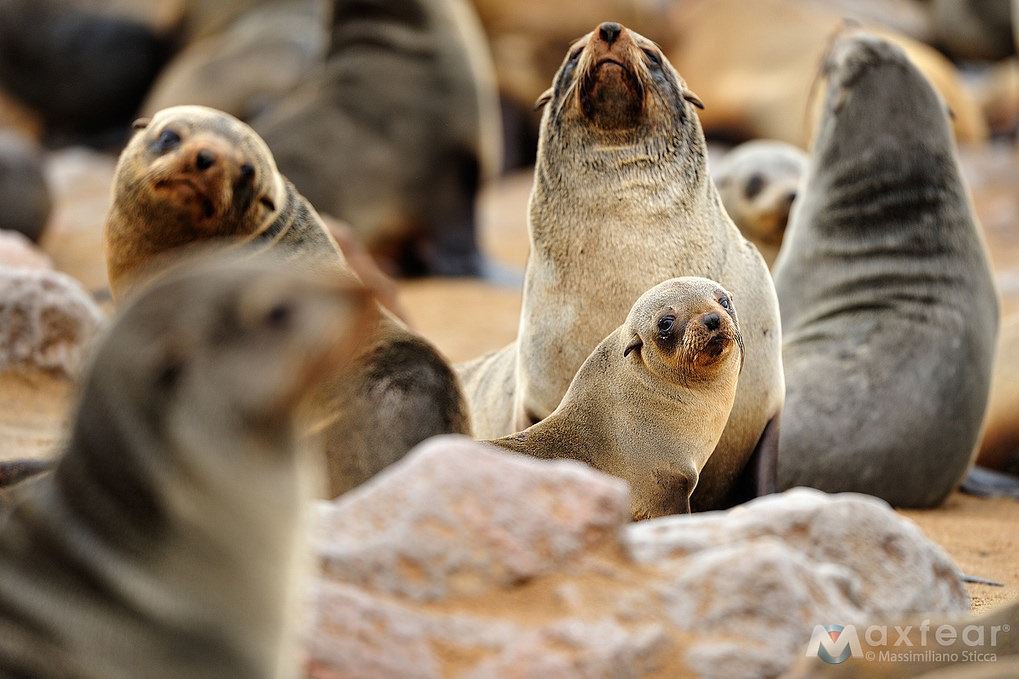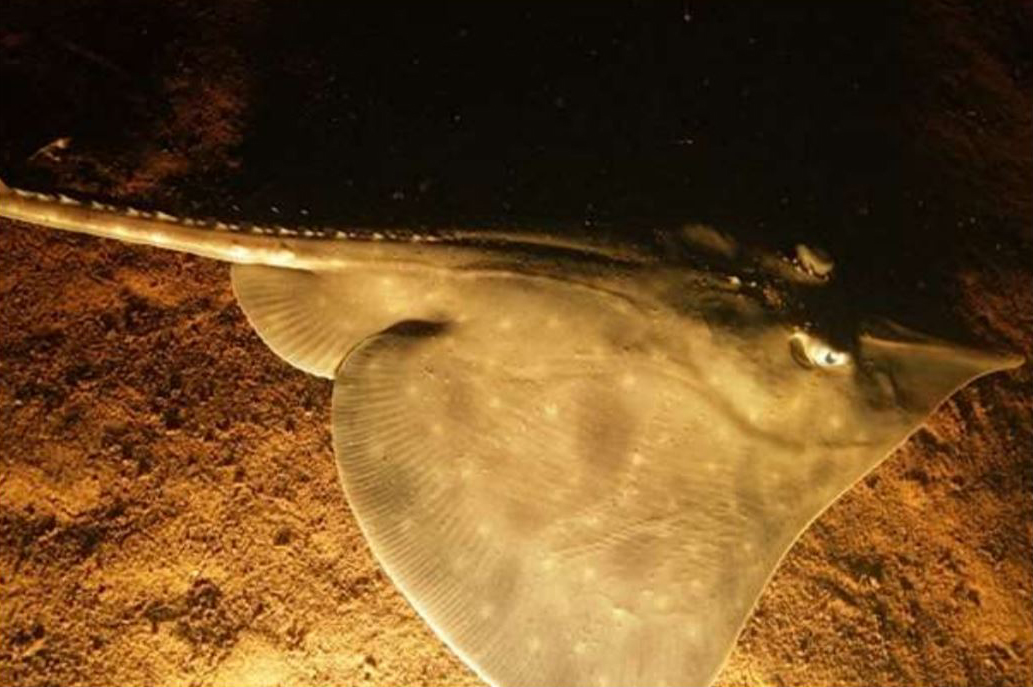Animal welfare
Farmed salmon live a life encaged, enduring barbaric conditions earning them the nickname "battery hen of the seas". Many suffer and die from disease, malformation, suffocation and over handling by man and machine. Salmon farm infrastructure has devastating impacts on seabirds and marine life including seals, whales and dolphins. The companies that grow them even get exemptions to maim and kill protected wildlife as a routine part of 'farming' operations.
This is a stark contrast to their image of clean, green, sustainable and RSPCA approved.

- Seals are protected native animals, drawn to fish farms as a food source. To deter them, fish farms are allowed to fire beanbag bullets at seals which habitually approach the farms. There have been reports of seals being blinded and deafened as a result of this.
Fish farms also use what they misleadingly call 'crackers' – underwater explosives – to scare off seals and dolphins. Sudden loud noises underwater are known to cause distress and injury to marine life, especially those which rely on hearing to communicate, and hunt for food.
Maugean skate threatened with extinction

- The Maugean skate is about 75cm long and 50cm wide, it is Tasmania's largest endemic fish. It now lives only in Macquarie Harbour on Tasmania's west coast.
- It hit the news in 2011 when the salmon industry itself admitted that a big expansion it was planning would cause what it called "minimal to moderate" harm to the species.
- A research outcome released by scientists from the Institute of Marine and Antarctic Studies, shows that numbers of the Maugean skate dropped by nearly half between 2014 and 2021. What really rang alarms was sampling data indicating that between 2014 and 2021, the proportion of juvenile females in the total population had crashed by more than 82 per cent.
- Salmon farming is identified as a principal cause of the species' plight, whereby fish faeces and uneaten food piled on the harbour floor under and around salmon pens – 2000 tonnes of it each year – lowers dissolved oxygen levels throughout the harbour.
Source: Peter Boyer, The Mercury, 23 May 2023 (viewed online 23 May 2023)
NOFF adds that the IMAS study has since been confirmed by two reports from the Federal Government's Threatened Species Scientific Committee, made up of twelve independent, leading scientists.
Will the skate be the only beneficiary of oxygenation?
The salmon industry and the Federal government are jointly funding a research project to see if oxygenation of the waters will save the skate (Mercury, 22 December 2023, paywalled). But there will be other significant beneficiaries - farmed salmon. This has not been mentioned in industry or government media releases.
A recent academic research study in Canadian sea pens reported that:
As climate change continues to warm oceans and exacerbate deoxygenation, coastal ecosystems and anthropogenic activities that occur there are left vulnerable. Fish cultured in ocean net pens are increasingly subjected to oxygen stress. Aeration and oxygenation have been utilized to improve oxygen conditions in pond aquaculture; however, their use in open ocean net pens is still in its infancy . . . [our tests show that] Oxygenation likely resulted in the upwelling of cold deep water, lowering the cage temperature by ∼4 ℃ which in turn increased oxygen solubility and decreased fish metabolism . . . As climate change increases hypoxia in coastal regions, where aquaculture practices continue to expand, oxygenation systems will become commonplace.
Source: Oxygenation effects on temperature and dissolved oxygen at a
commercial Atlantic salmon farm. Bourke, Merideth et al, Dalhousie University, Halifax. Aquacultural Engineering v 99, Nov 2022. (Viewed at Science Direct 22 December 2023) .
NOFF has elsewhere pointed out that industry proposals to re-oxygenate the water in Macquarie Harbour are disingenuous at best: this may assist the skate, but will also help farmed salmon better survive the adverse impacts of ocean warming. What sounds like industry generosity turns out to be yet another taxpayer subsidy.
What about skate in Bathurst Harbour?
The salmon industry has claimed that the presumed extinction of Maugean skate from Bathurst Harbour, where there is no salmon farming, shows that the industry can't be responsible for threats to the skate in Macquarie Harbour. This argument does not hold water:
- Only four skate were ever recorded in Bathurst Harbour, the last in 1992. Scientists suggest therefore that they may have always been a transient population there, and may never have been abundant.
- The two harbours are very different climatically. Bathurst Harbour has a relatively uniform depth of 3 to 7 metres, and is more subject to climatic temperature changes, while Macquarie Harbour averages 15m, with some areas down to 50m, thus providing cooler areas for the skate to shelter from the effects of rising sea temperatures due to global warming. Unfortunately, many of these cooler areas are now covered in pollutants from the salmon pens.
Sources:
CSIRO Coastal Environmental Modelling Team. Macquarie Harbour (TAS, 2013-2020), viewed online 20 Sept 2024
Alastair Hirst et al. A detailed benthic faunal and introduced marine species survey of Port Davey, Bathurst Channel and Bathurst Harbour in SW Tasmania. Tasmanian Aquaculture and Fisheries Institute, November 2007. Downloaded from the Wayback Machine, 20 Sept. 2024.
Cruel methods of disease control

- Amoebic gill disease is a common threat, particularly in summer. It deteriorates salmon gills so they don't get enough oxygen. It can be washed off in a process called 'bathing', sometimes every 30-40 days, which involves pumping fish through a tube into a freshwater tank, and then returning them to their sea pen. Bathing is done on board large specialized wellboats, or by towing the pens very slowly to shore-based facilities with access to fresh water.
- Processes like this are very stressful for fish and can result in injuries and mortalities. In 2018, a Tassal farm killed 30,000 fish during a 'bathing' treatment, citing 'human error' as the cause.
- In 2018, over one million fish died from pilchard orthomyxovirus (POMV) in overcrowded fish farms in the fragile waters of Macquarie Harbour.
Cruel production methods

- In other parts of the world (in the USA and Scotland) there is evidence that salmon handlers routinely casually maltreat fish, and that the use of heavy industrial machinery to process fish can cause distress and pain. Both are characteristic of inadequate management, supervision and training.
- In Tasmania, without independent inspections, with no transparency, and with legal repercussions for members of the public entering areas around industrial salmon leases, NOFF is unable to assess fish health, mishandling, stress and pain levels.
- NOFF and animal welfare groups here and internationally are urging greater transparency and a regime of regular monitoring..


